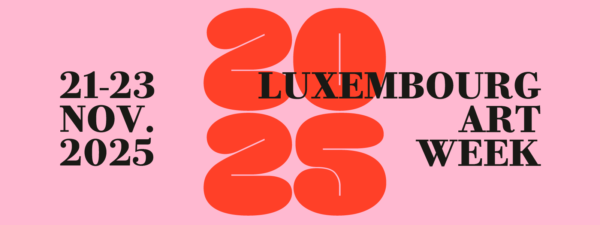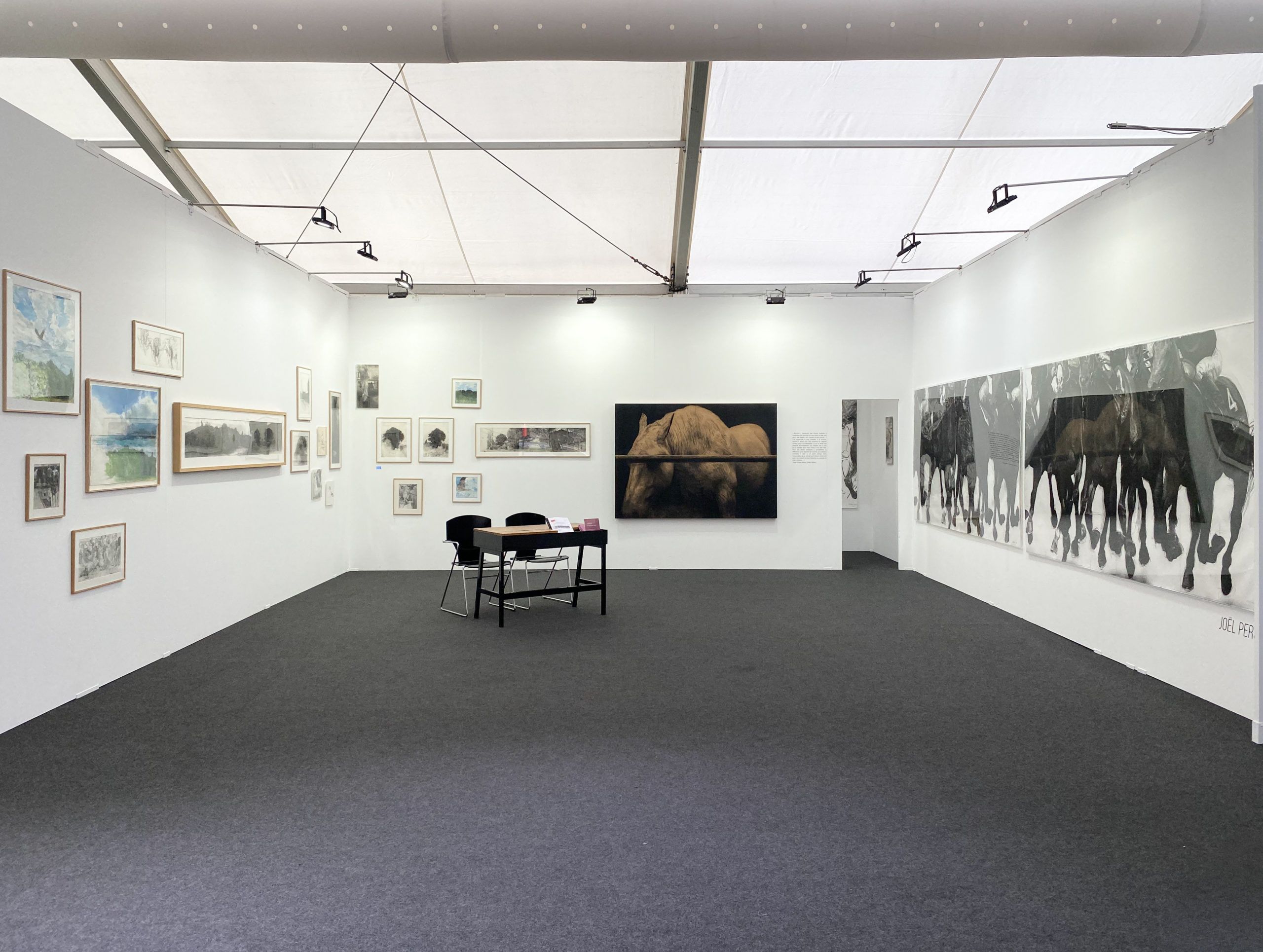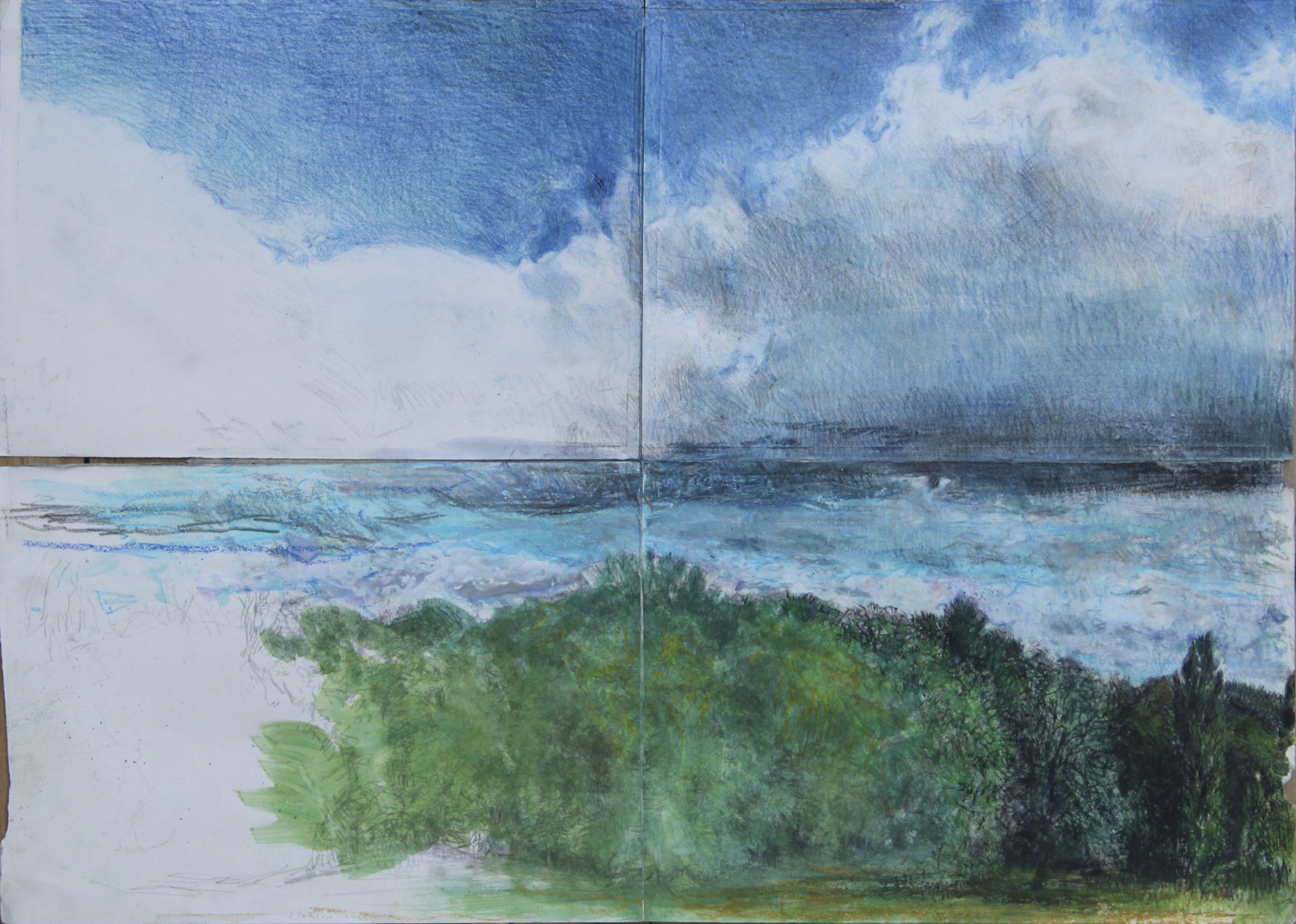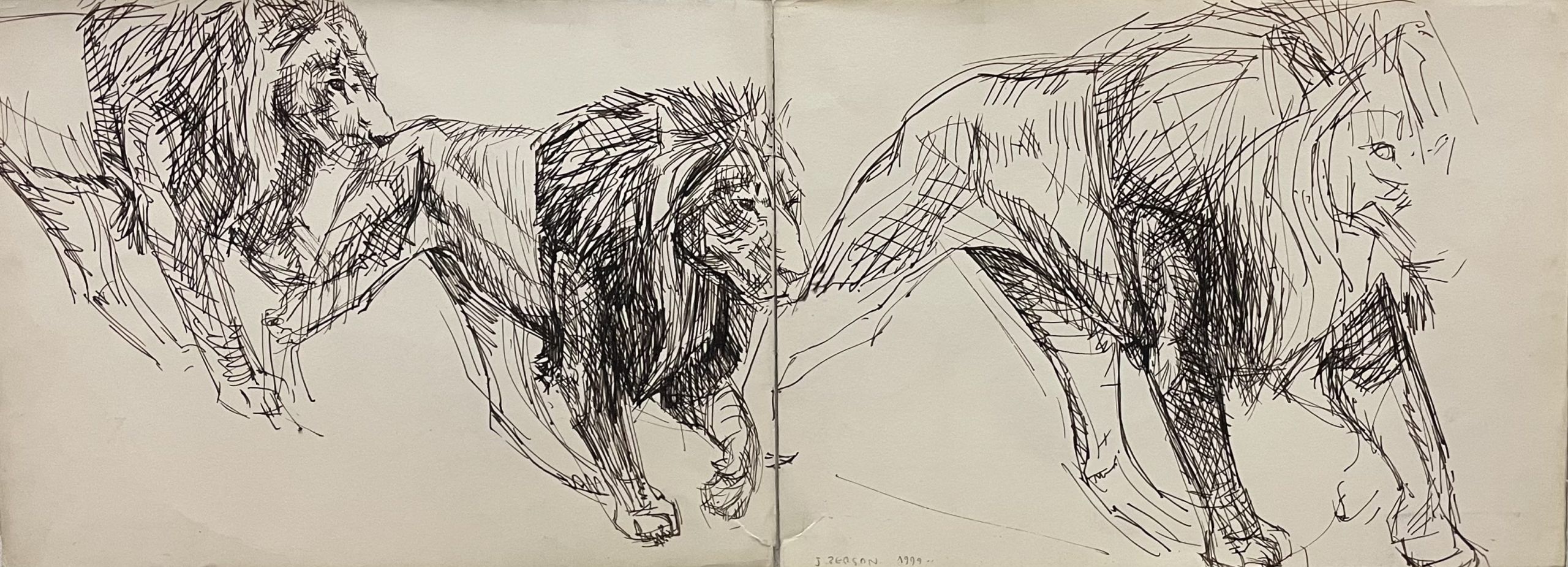JOËL PERSON
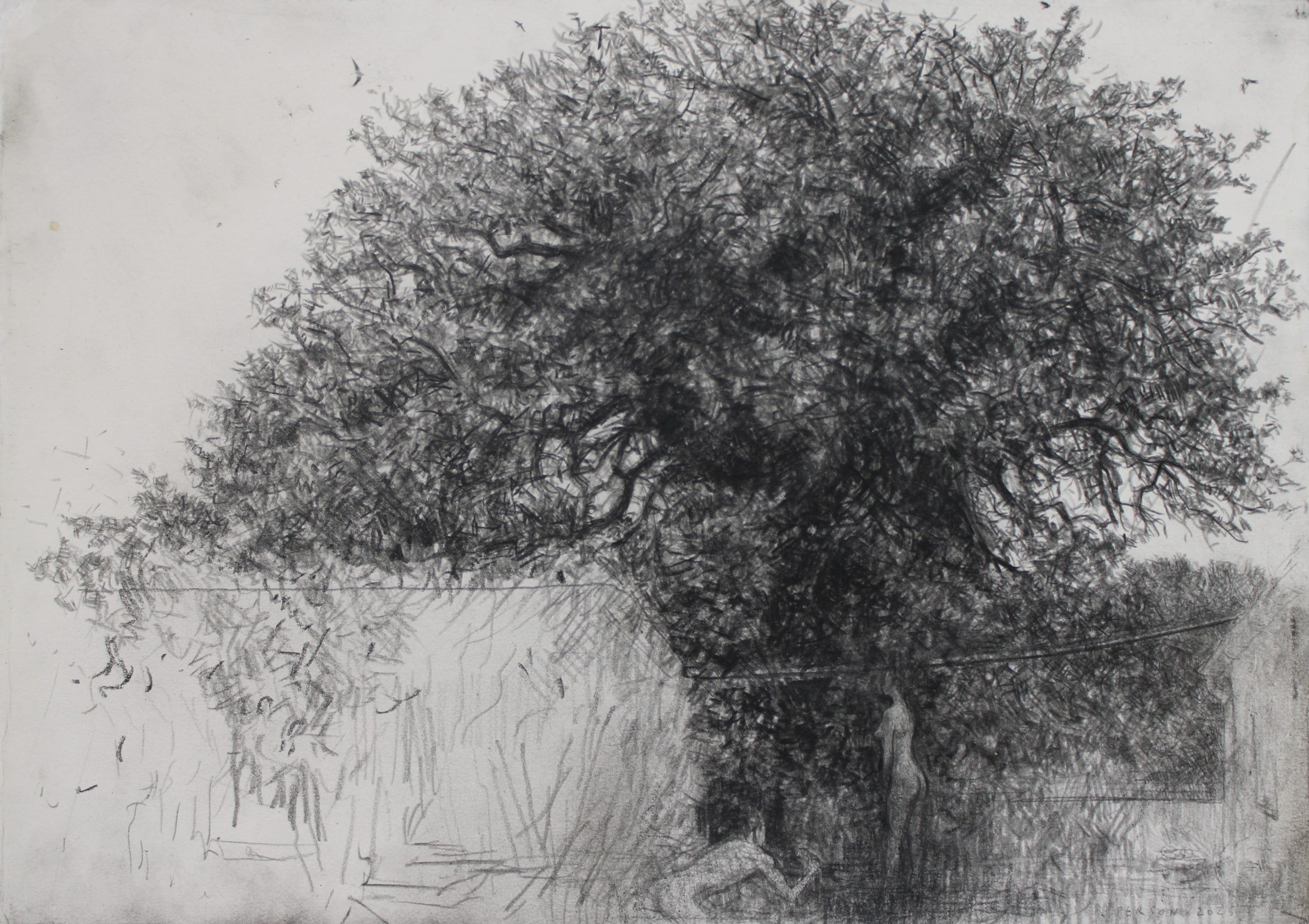
“I hate doing things literally”: Joël Person's lost paradise is above all drawn. Born in 1962, the French artist, whose career is already well established, offers a very personal, introspective reflection in this solo show. For beneath his gift for words, Joël Person asks himself: as we grow older, is childhood the carefree time that seems to have disappeared forever? How universal are these distant and often vague memories that are unique to each of us?
Through a monographic trajectory that attempts to explore the different aspects of this question, the answer emerges through his works.
First up are the “Horses of the Apocalypse,” a huge cavalcade over 9 meters long that kicks off Joël Person's artistic reflection. Their gallops read like a monumental musical score and, of course, their title evokes religious atonement. But once again, nothing is literal with Joël Person, and through his framing, the artist emphasizes the horses rather than the “riders,” the true leitmotif of his work. In the original text, it is the power of the horse that sets the pace for the artist's research.
The symphony continues with “Cheval à la barre” (Horse at the Bar), another recurring motif and pivotal point in the artist's career. This time, it is the horse that finds itself locked up. Its animal nature is all the more striking because it is shod, and all the more disturbing because the horse's head, pressed against the bar, opens up onto the viewer's space. Is it not a lost paradise to have domesticated the animal only to then lock it up? Through the very contemporary composition of this painting, Joël Person questions us about freedom that lasts only a moment, and about the nature of the dialogue that can be established with a horse whose eyes are literally “barred.”
The impassive “Song of the Earth” echoes a chant of renunciation, a tribute to a nature that is no longer what it once was but continues to resonate within us. This peaceful landscape surrenders itself to observation as well as threat: vineyards, crops, hunters, and territories inhospitable to fauna and flora lurk at the edge of the sheet of paper. And yet the rhythm of the earth is still there, immutable.
For while the lost paradise is, for Joël Person, very personal to each individual, the current context also reveals its global and universal nature. Wars, political tensions, and ecological problems destroy and render perishable the very notion of paradise. These daily losses remind us of what once was and is no longer, and remind us of our own finitude.
In this anxiety-provoking context, the artist repositions herself on what has been “lost”: it is by recalling her childhood that it becomes imprinted on her with greater precision. The numerous portraits, a selection of which are presented here, have dotted the artist's career like so many memories immortalized on paper. Without ever erasing pure solitude, it is also the artist's confrontation with another “self” in a tension offered to eternity. Paradise lost is what Joël Person rediscovers through drawing, which allows him to rediscover his primary, intuitive emotions, freed from all process.
